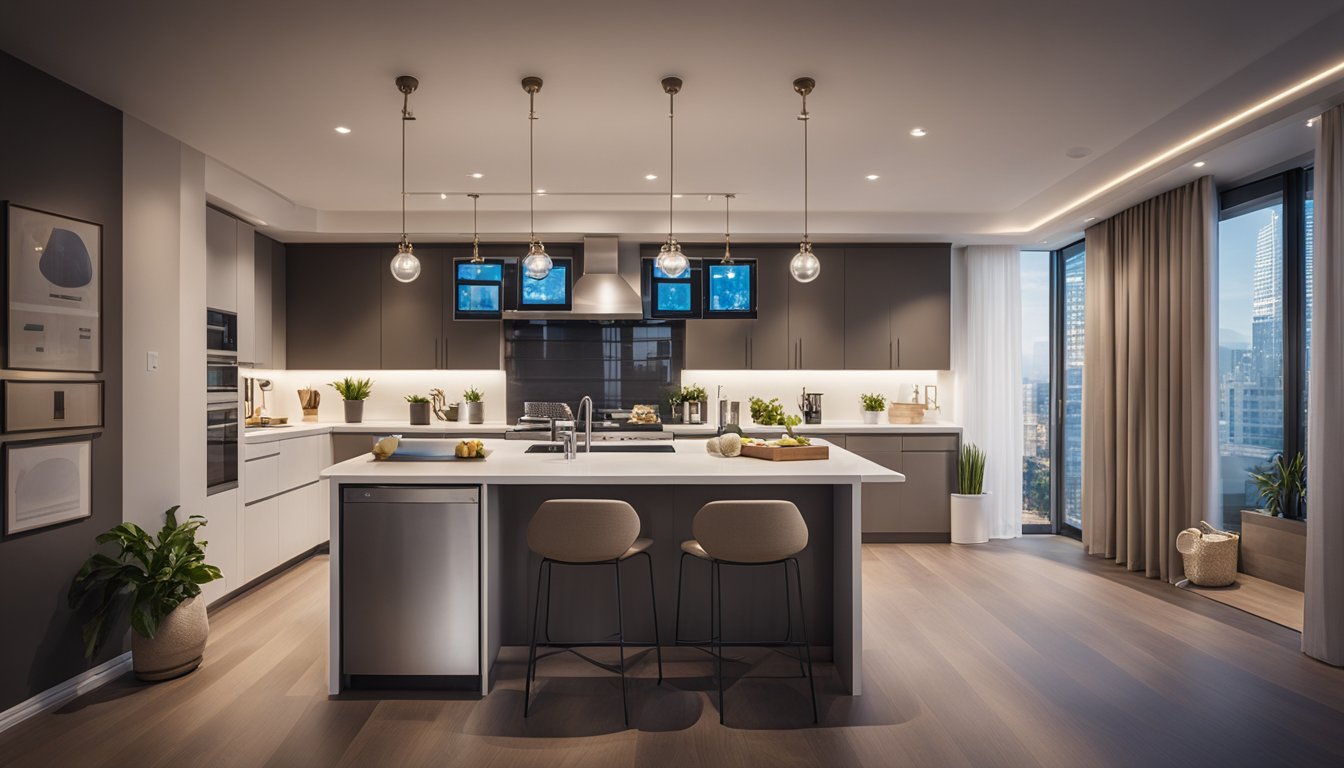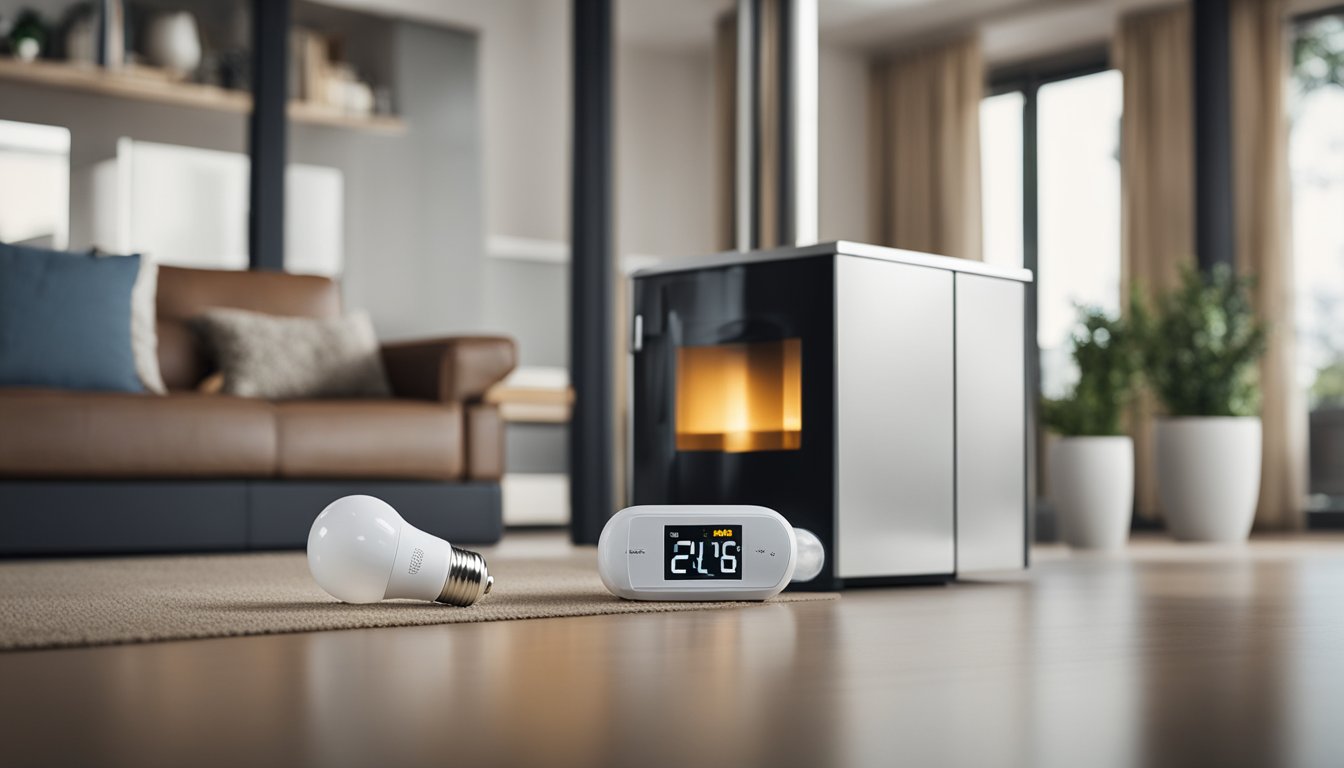Late updated: 23 Jul 2024 10:07
Written by: Eleanor Hartman
Energy-Saving Tips For UK Renters: Practical Advice For Lower Bills
For many renters in the UK, the challenge of managing energy costs can be daunting, especially with increasing utility bills. While owning property allows for extensive modifications, renting often means working within certain constraints. We can significantly reduce our energy bills with some savvy adjustments and better energy practices.

Simple tweaks, like lowering the thermostat by just one degree, can yield substantial savings over time. There are also low-cost and no-cost methods to reduce energy usage without needing major changes. With a focus on practical, actionable tips, we can all make our rented homes more energy-efficient.
Our goal is to empower renters with the knowledge and tools to make smart energy choices. Let’s explore some effective strategies that will help us save both energy and money, keeping us comfortable and financially sound.
Key Takeaways
- Adjusting everyday habits can result in significant energy savings.
- Renters can achieve efficiency gains without major home modifications.
- Being proactive and informed helps navigate energy use in rental homes.
Understanding Energy Efficiency in UK Rentals
Energy efficiency in UK rentals is crucial for reducing energy bills and improving comfort. Key areas include home heat retention, making energy-related rental agreements, and adopting smart habits to reduce energy consumption.
The Fundamentals of Home Heat Retention
Proper insulation and draught-proofing are essential for retaining heat in rental properties. Always check if the property has adequate insulation in walls, roofs, and floors. Insulated homes retain heat longer, reducing the need for constant heating.
We should also consider the heating system itself. A modern, efficient boiler can significantly cut down on fuel usage. Landlords are often required to ensure properties meet minimum energy standards, which includes ensuring efficient heating equipment is installed.
Draught-proofing doors and windows can further prevent heat loss. Simple measures like using draught excluders or applying weather strips around doors and windows can make a noticeable difference in indoor temperature retention.
Navigating Rental Agreements for Energy Improvements
Tenants can request energy efficiency improvements from landlords. In the UK, rental properties must meet minimum energy efficiency standards. Since April 2020, homes must achieve at least an E rating on the EPC scale to be rented out.
It's crucial to understand the terms of your tenancy agreement regarding energy improvements. Some agreements allow for modifications while others may require landlord approval. Discuss potential upgrades, like improved insulation or double glazing, with your landlord.
Landlords are also obliged to spend up to £3,500 to upgrade energy efficiency if the property doesn't meet the required standards. Understanding these legal requirements can help tenants advocate for necessary improvements.
Smart Habits to Reduce Energy Bills
Simple, everyday actions can help save energy and reduce bills. We should always turn off lights and appliances when not in use. Using energy-efficient bulbs can also contribute to savings.
Small changes in heating habits, like setting the thermostat a few degrees lower and using programmable timers, can make a big difference. Wearing warm clothing indoors can also reduce the need for higher heating settings.
Finally, keeping an eye on energy consumption and being conscious of waste can lead to substantial savings. Modern smart meters can help us monitor usage in real-time, enabling more informed decisions about energy use.
Practical Energy-Saving Tips for Renters

Taking steps to save energy can significantly cut down on utility bills while also contributing positively to the environment. Here are several specific tips to help renters in the UK maximise their energy efficiency.
Optimising Heating and Radiators
One of the most effective ways to save on heating bills is by properly adjusting your thermostat. Set your thermostat to a lower temperature when you're not at home and to around 18-20°C when you are.
Bleeding your radiators can also improve their efficiency, ensuring there are no trapped air bubbles blocking the heat distribution. Installing a smart thermostat helps you better control heating times and temperatures, saving energy.
Enhancing Efficiency in Water Usage
Swapping a bath for a quick shower can lead to substantial savings on hot water. Installing a water-saving shower head reduces water usage without compromising on comfort.
When boiling water, consider using a kettle instead of a pan on an electric hob, as kettles are typically more efficient. Fixing dripping taps, particularly hot water taps, can also save significant amounts of water.
Effective Appliances Use and Management
We should always opt for energy-efficient appliances, such as washing machines, dishwashers, and tumble dryers with high energy ratings. Running full loads in these appliances maximises their efficiency.
Turning off appliances at the plug and avoiding standby mode can further reduce electricity use. Using LED bulbs instead of traditional ones cuts down on lighting costs.
Simple DIY Measures for Immediate Savings
Blocking draughts around doors, windows, floorboards, and chimneys can make a huge difference in keeping your home warm. Installing draught excluders or even using thick curtains and blinds can keep heat from escaping.
Make use of natural light during the day to save on electricity. Defrosting your freezer regularly ensures it runs efficiently. For those lucky enough to have access, consider adding loft insulation where possible.
Implementing even a few of these practical tips can lead to noticeable savings on your energy bills and contribute to a greener environment.
Frequently Asked Questions

In this section, we address some common concerns renters in the UK have about saving energy. Practical steps, low-cost investments, and behavioural changes play vital roles in reducing energy consumption.
What are practical steps to lower my flat's electricity usage?
To reduce electricity usage, focus on everyday habits. Turn off lights when not needed, unplug devices when they're not in use, and use energy-efficient bulbs. Utilising natural light during the day can significantly cut down on electricity usage as well.
Which low-cost investments can I make as a tenant to conserve energy?
Low-cost investments include draught excluders, radiator reflectors, and thick curtains. These items can help maintain indoor temperatures, reducing the need for excessive heating. Installing a smart meter can also help monitor and manage energy use efficiently.
What measures is the UK taking to promote energy conservation?
Several UK initiatives aim to promote energy conservation. The Energy Company Obligation (ECO4) scheme, for instance, provides support for improving energy efficiency. Various government websites offer impartial advice on how to benefit from these schemes.
How can behavioural changes contribute to energy savings in rented accommodation?
Small behavioural changes can have significant impacts. Running dishwashers and washing machines only with full loads, and reducing the use of heating and air conditioning can save considerable energy. Simple actions such as taking shorter showers also contribute to energy savings.
What are some effective energy-conservation strategies for renters in the UK?
Renters can adopt habits like turning off appliances when not in use and setting thermostats to lower temperatures during winter. Additionally, using energy-efficient appliances and insulating the property with affordable materials can make a big difference.
How can I make my rented property more energy-efficient without major renovations?
Seek permission to make small changes such as installing energy-efficient light bulbs and weather stripping. You might also discuss with your landlord about possible upgrades like installing insulation or better windows. Using energy-efficient practices and products can mitigate energy use without requiring major renovations.